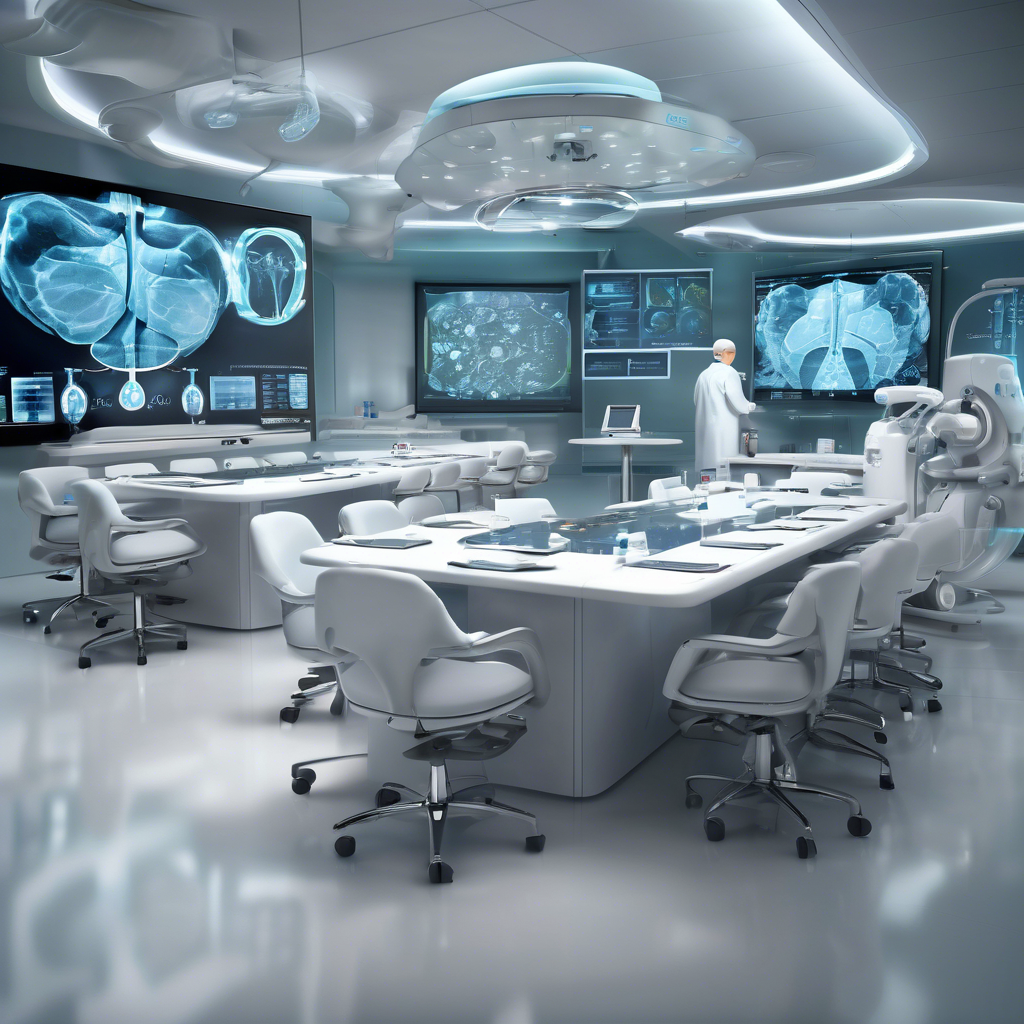
The oncology community is abuzz with anticipation as the 2025 American Society of Clinical Oncology (ASCO) Annual Meeting approaches, promising a wealth of groundbreaking research and clinical insights. In a special episode of Oncology Decoded, renowned experts Manojkumar Bupathi, MD, MS, and Benjamin Garmezy, MD, delved into the most anticipated highlights of this landmark event. Both co-chairs of the Genitourinary Cancer Research Executive Committee at the Sarah Cannon Research Institute (SCRI), their profound expertise in genitourinary cancers sets the stage for a rich discussion centered on the future of kidney, bladder, and prostate cancer treatments. Their dialogue not only reveals the latest data poised to reshape treatment paradigms but also underscores the relentless pursuit of curative strategies, particularly emphasizing the transformative role of adjuvant therapy in kidney cancer.
Kidney cancer research is heating up, with a special emphasis on immunotherapy’s expanding role and innovative treatment combinations. One headline-grabbing study is the Phase 3 PDIGREE trial, investigating the synergistic effects of immunotherapies—nivolumab (Opdivo) and ipilimumab (Yervoy)—followed by maintenance regimens involving nivolumab alone or with cabozantinib (Cabometyx). This trial exemplifies the modern approach to metastatic kidney cancer: combining immune checkpoint inhibitors with targeted therapies to enhance patient outcomes. Dr. Tian Zhang will present these pivotal findings during the meeting, spotlighting the potential to fine-tune how clinicians sequence treatments in advanced disease. Meanwhile, the Phase 1b STELLAR-002 trial is exploring the anti-cancer potential of zanzalintinib, a novel agent paired with nivolumab and relatlimab, in solid tumors including kidney cancer. This combination could unlock new pathways for tumor recognition and elimination, heralding a fresh wave of immunotherapeutic strategies. The attention to biomarker discovery through these trials is particularly noteworthy, offering hope for more personalized and effective interventions that target tumors on a molecular level.
In bladder cancer, the conversation pivots toward the promising domain of neoadjuvant therapies and the integration of circulating tumor DNA (ctDNA) analysis. ctDNA is an exciting frontier—essentially tiny fragments of tumor DNA that circulate in the bloodstream—offering an opportunity to monitor disease in real-time and tailor treatments accordingly. Dr. Thomas Powles will present updates from the Phase 3 NIAGARA trial, which assesses ctDNA in patients receiving perioperative durvalumab (Imfinzi) for muscle-invasive bladder cancer. This trial could validate ctDNA as a predictive and prognostic marker, a breakthrough that might revolutionize how urologic oncologists decide on the intensity and duration of therapy. Another major highlight is the Phase 3 CheckMate901 trial, comparing the combination of nivolumab plus ipilimumab versus traditional chemotherapy (gemcitabine/carboplatin) for unresectable or metastatic urothelial carcinoma. The outcome of this trial might redefine first-line treatment standards, moving towards immunotherapies with potentially better efficacy and safety profiles.
Prostate cancer researchers and clinicians are also eagerly awaiting results that could alter therapeutic approaches, with an intriguing spotlight on artificial intelligence (AI) and its integration into patient care. A groundbreaking study presented by Dr. Nicholas David James examines a multimodal AI model designed to predict which patients with high-risk, non-metastatic prostate cancer will benefit most from second-generation androgen receptor pathway inhibitors. This represents a convergence of technology and medicine, harnessing data-driven insights to personalize treatment like never before. Complementing this is a Phase 3 trial of CAN-2409, a novel gene therapy combined with prodrug and standard external beam radiation, expected to sharpen strategies for newly diagnosed localized prostate cancer. Adding to the momentum, emerging data for hormone-sensitive prostate cancer—especially in patients with high-risk or high-volume metastatic disease harboring BRCA mutations—may unveil new therapeutic avenues, reflecting a continued trend toward precision oncology guided by genetic and molecular profiling.
Beyond the individual disease-specific breakthroughs, the 2025 ASCO Annual Meeting promises to highlight broader oncology themes that are shaping the future of cancer care. Immunotherapy remains a headline act, with continuous efforts to refine its application and overcome resistance. Multimodal AI is spotlighted not just as a diagnostic or predictive tool but as a driver of integrated decision-making that could augment every stage of patient management. Furthermore, the exploration of novel targets like TROP2 inhibitors signals an exciting expansion of therapeutic arsenals against solid tumors, potentially ushering in new hope for patients who have exhausted conventional options. The synthesis of these advances underscores an era where data, technology, and biology meld seamlessly to redefine cancer treatment.
In sum, the 2025 ASCO Annual Meeting stands as a beacon of innovation and hope in oncology, with genitourinary cancers at the forefront of scientific breakthroughs. The insights shared by Drs. Bupathi and Garmezy not only prepare clinicians and researchers for transformative data but also ignite excitement about the evolving landscape of cancer therapy, guided by immunotherapy’s promise, biomarker-driven personalization, and cutting-edge AI applications. As the oncology community converges to explore and celebrate these developments, patients worldwide await the ripple effects—enhanced survival, quality of life, and, ultimately, cures that once seemed out of reach.
#ASCO2025 #OncologyInnovation #GenitourinaryCancers #ImmunotherapyAdvances #CancerResearch #PrecisionMedicine #ArtificialIntelligenceInOncology
Leave a Reply